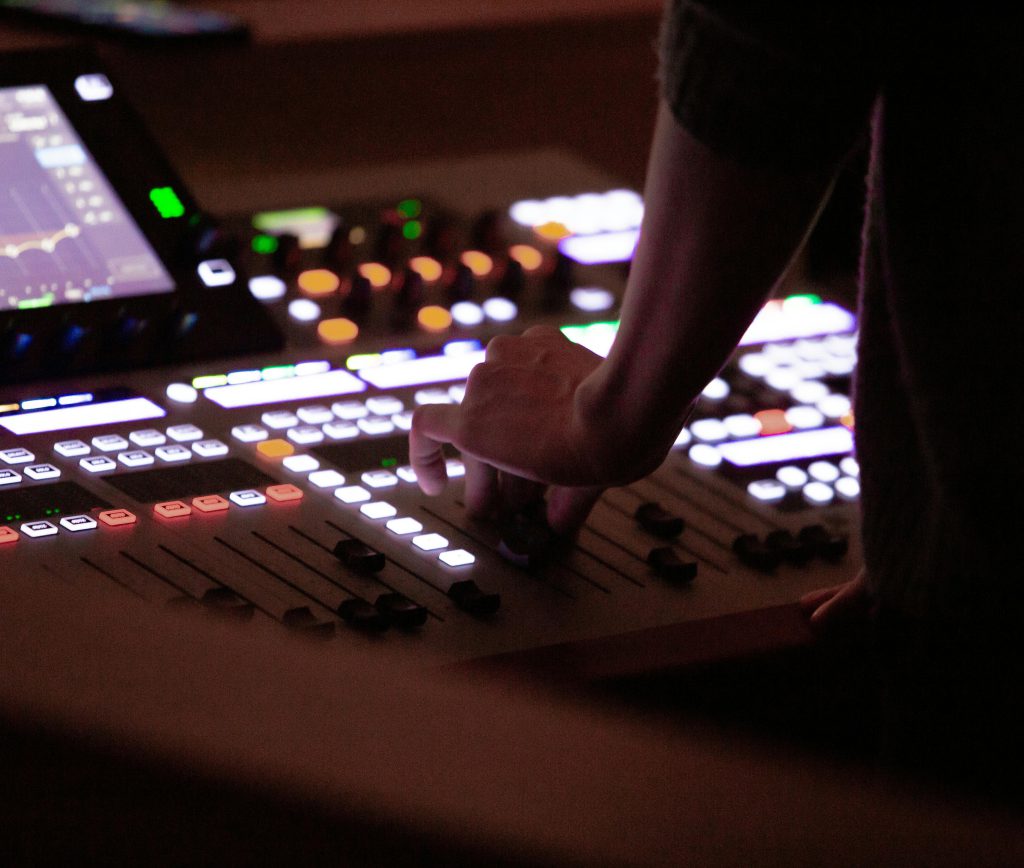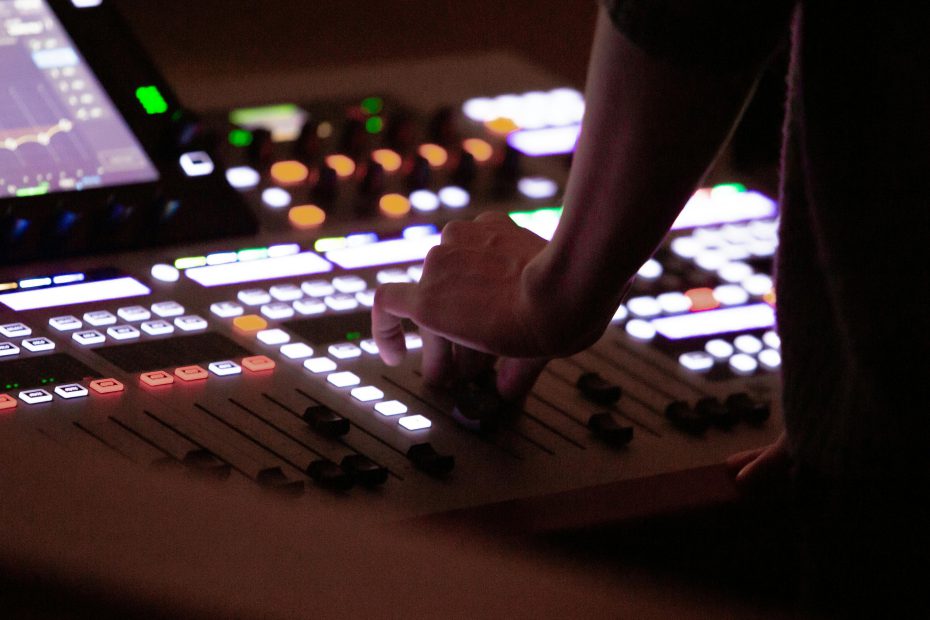Essential Features to Look for in a Digital Mixer for Studio Use
When it comes to choosing the right digital mixer for studio use, the options can be overwhelming. Digital mixers have become a cornerstone in modern audio production, offering a range of features that provide unmatched flexibility, precision, and functionality. However, not all digital mixers are created equal. Understanding the essential features you should look for will help ensure that your studio setup meets your specific needs. In this article, we’ll explore the key features to consider when selecting a digital mixer for your studio.

What is a Digital Mixer?
A digital mixer is a device that allows for the mixing of audio signals through digital signal processing (DSP). Unlike analog mixers, which use physical components to manipulate audio signals, digital mixers use algorithms and software to process and control the audio. This provides several advantages, such as more precise control, the ability to store settings, and easier integration with other digital devices.
In studio settings, a digital mixer is essential for handling multiple audio sources, applying effects, and routing the sound to different destinations. Whether you’re recording, mixing, or producing, choosing the right digital mixer is crucial for achieving the best results.
Digital Mixer Features That Make a Difference in the Studio
When shopping for a digital mixer for studio use, there are several features that you should prioritize. Each feature plays a significant role in how your mixer performs and interacts with your other equipment. Below, we highlight the most important features to consider.
1. Sound Quality and Signal Processing
The quality of sound that a digital mixer can produce is one of the most important factors to consider. Digital mixers use internal converters to process analog signals into digital format, and the quality of these converters can significantly impact the overall sound. Look for mixers that offer high-quality digital-to-analog (D/A) and analog-to-digital (A/D) converters, as these will ensure that your audio retains its integrity during the conversion process.
Additionally, pay attention to the signal processing capabilities of the mixer. Features like high-resolution EQ, dynamic range control, and built-in effects such as reverb, delay, and compression can make a huge difference in shaping your sound.
2. Multiple Input and Output Channels
For studio use, you’ll need a digital mixer with plenty of input and output channels. Depending on the complexity of your setup, having enough inputs is crucial for connecting various instruments, microphones, and other audio sources. Many modern digital mixers offer a wide range of input options, such as XLR, TRS, and even USB connections, allowing for flexibility in connecting different devices.
Equally important is the number of output channels. In a studio, you’ll need separate outputs for monitoring, recording, and possibly routing audio to other devices or speakers. Look for a mixer that provides multiple output options, such as auxiliary sends, main outputs, and direct outputs, to ensure you can accommodate your needs.
3. User Interface and Control Options
One of the key advantages of a digital mixer is the ability to control settings with precision. However, the interface and control options can vary significantly from one mixer to another. For studio use, it’s important to choose a mixer with an intuitive, user-friendly interface that allows you to make adjustments quickly and easily.
Touchscreen displays are common on many digital mixers, providing an easy way to navigate through different settings, effects, and routing options. In addition to the touchscreen, consider whether the mixer offers physical controls like faders, knobs, and buttons. These tactile controls allow for quick, real-time adjustments during mixing sessions.
4. Built-in Effects and Processing
Another essential feature to look for in a digital mixer for studio use is the availability of built-in effects and processing tools. Many digital mixers come with a range of effects, such as reverb, EQ, delay, and compression, which can be applied directly to the audio signal. This can save you time in the studio, as you won’t need to rely on external effect units or plugins for basic processing.
Look for mixers that offer high-quality DSP (digital signal processing) chips, as these ensure that the effects are clean and transparent, with minimal distortion. Additionally, some mixers allow you to store and recall effect presets, which can be a huge time-saver when working on multiple projects.
5. Automation and Recallable Settings
One of the standout benefits of digital mixers is their ability to store and recall settings. This is especially useful in a studio environment, where you may need to switch between multiple configurations for different sessions. Automation features, such as recallable fader positions, EQ settings, and effects presets, allow you to maintain consistency and efficiency in your workflow.
Look for mixers with comprehensive automation features, such as motorized faders, programmable scenes, and full scene recall. These features allow you to store and quickly switch between different settings for different sessions, minimizing setup time and ensuring that your mix stays consistent.
6. Integration with Other Studio Equipment
When selecting a digital mixer for studio use, you should also consider its ability to integrate with other studio equipment. Many mixers offer seamless integration with DAWs (Digital Audio Workstations) via MIDI or USB connectivity, allowing you to control your DAW directly from the mixer. This can be especially helpful for live recording sessions or when working on multi-track projects, as you can adjust levels, apply effects, and switch between different tracks without constantly having to switch between your mixer and DAW.
Additionally, some digital mixers can integrate with external devices such as audio interfaces, effects processors, and other pieces of studio gear. Look for mixers that offer versatile routing options and support industry-standard protocols like AES/EBU, MADI, or Dante for network-based audio connections.
Digital Mixer Performance and Reliability
In addition to the technical features listed above, the overall performance and reliability of a digital mixer are crucial factors to consider. Look for a mixer that provides stable performance even during extended recording or mixing sessions. The last thing you want is for your mixer to experience glitches, crashes, or audio dropouts during an important session.
7. Latency and Processing Power
The latency of a digital mixer refers to the time delay between when an audio signal enters the mixer and when it is processed and output. Low latency is essential for a smooth recording and mixing experience, particularly in a studio environment where precision is key. When evaluating different mixers, pay attention to the specified latency time, ensuring it meets your needs.
Equally important is the processing power of the mixer. High-performance digital mixers can handle complex signal chains, multiple effects, and large projects without significant strain. Look for mixers with powerful processors and ample RAM to handle demanding studio sessions.
8. Portability and Build Quality
For many studio users, portability and build quality are also key considerations. While most digital mixers are designed to stay in one place within a studio, some users may need a more portable solution for mobile studios or on-location recording. Choose a mixer with a sturdy, reliable build that can withstand regular use and transport.
Portability is also essential for mixers with touchscreen interfaces, as they should be lightweight and easy to move around the studio if needed. Additionally, consider whether the mixer is rack-mountable, which can save space and make it easier to integrate into your existing studio setup.
Choosing a Digital Mixer for Studio Use
When selecting a digital mixer for studio use, it’s important to focus on the features that best align with your specific needs and workflow. Look for a mixer with high-quality sound processing, plenty of input and output options, an intuitive interface, built-in effects, and seamless integration with other studio equipment.
The right digital mixer will provide you with all the tools you need to achieve high-quality recordings and mixes. By prioritizing the features mentioned in this guide, you can ensure that your mixer meets your expectations and enhances your overall studio experience.
Selecting a digital mixer for studio use doesn’t have to be overwhelming. Focus on the essential features outlined above, and you’ll be well on your way to choosing a mixer that suits your needs and elevates your audio production.
When it comes to choosing the right digital mixer for studio use, the options can be overwhelming. Digital mixers have become a cornerstone in modern audio production, offering a range of features that provide unmatched flexibility, precision, and functionality. However, not all digital mixers are created equal. Understanding the essential features you should look for will help ensure that your studio setup meets your specific needs.
